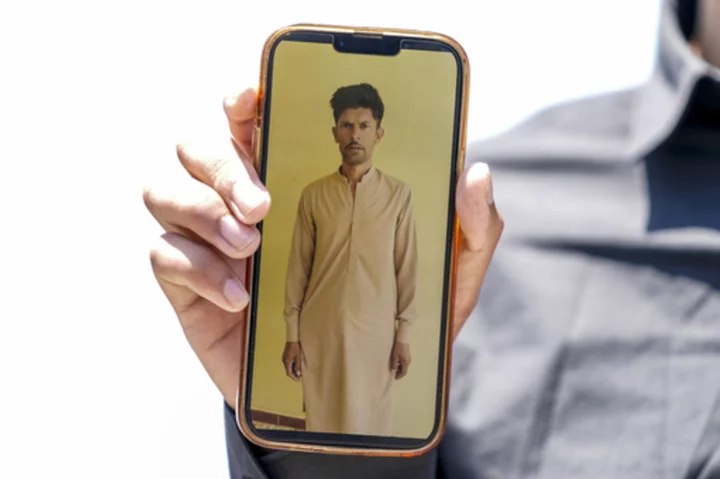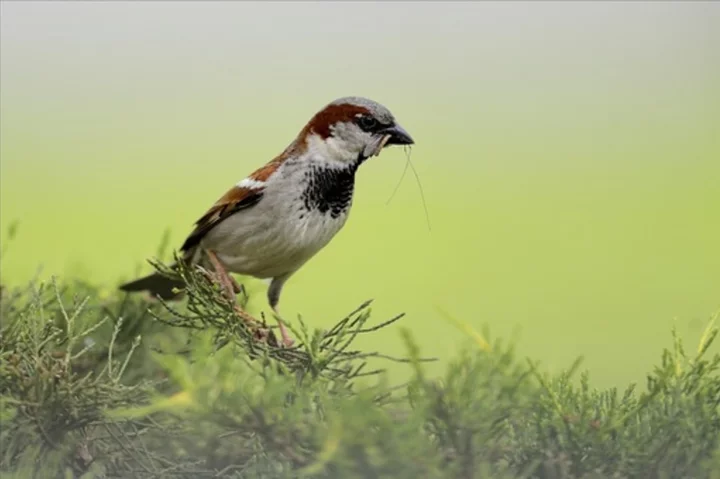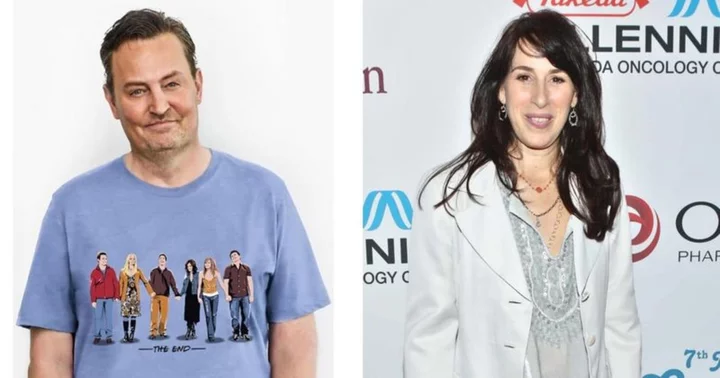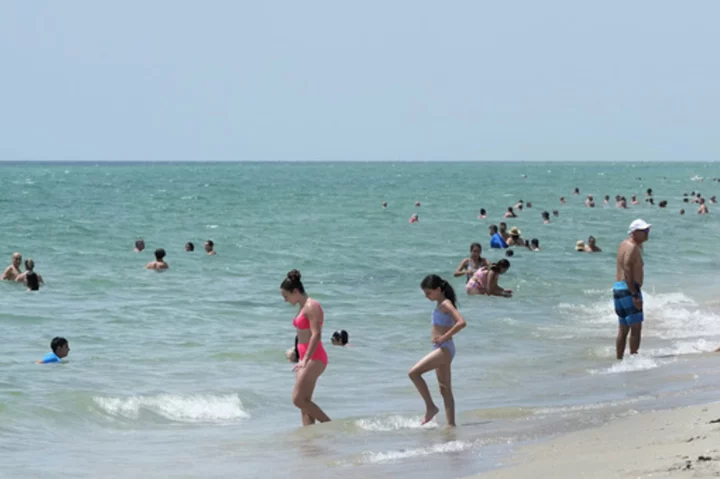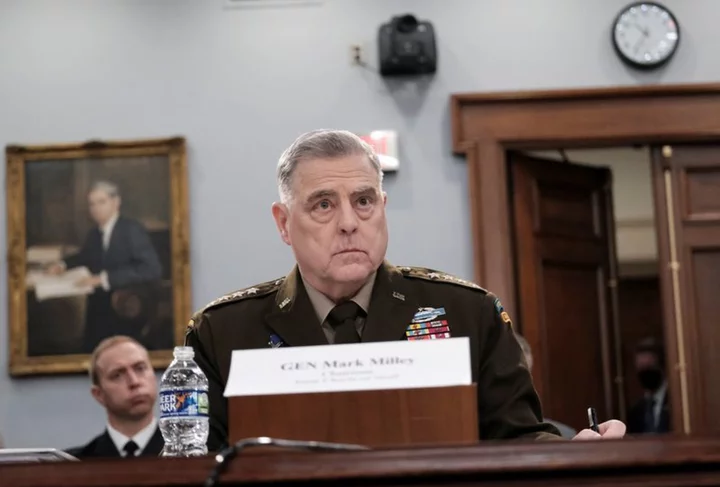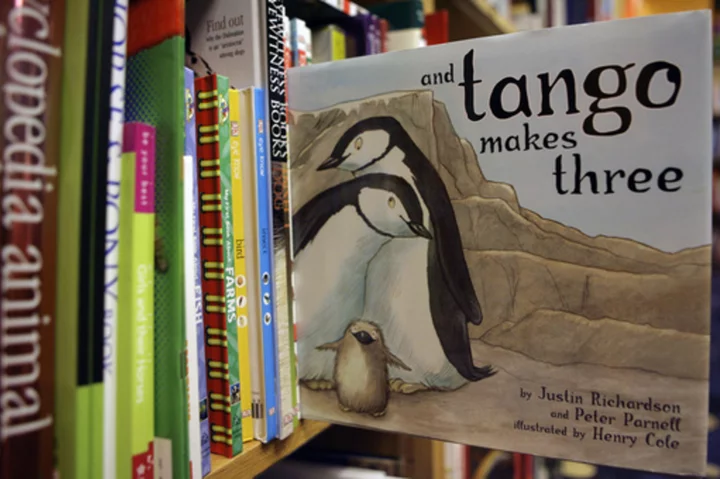MALAKASA, Greece (AP) — A court in southern Greece on Monday postponed a hearing for nine Egyptian men accused of being migrant smugglers in a case involving the sinking of a fishing trawler last week that killed at least 80 people and left hundreds more missing.
Estimates have put the number of people packed on the dilapidated fishing trawler at around 700-750.
A total of 104 people were rescued when the boat capsized and sank in international waters off the coast of Greece last Wednesday, while 78 bodies were recovered. A search and rescue operation continues, but the chances of finding more survivors are slim.
Another two bodies were found Monday in the area of the search, Greece's coast guard said. It added that they were being taken to the southern port of Kalamata ahead of identification efforts.
The court in Kalamata postponed the Egyptians' hearing until Tuesday to give them and their lawyers time to review the testimonies of nine Syrian and Pakistani survivors, given over the weekend.
The Egyptians, who were reportedly identified as members of a smuggling ring by some of the survivors, face charges of participating in a criminal organization, causing a shipwreck and endangering lives.
Relatives of the boat passengers gathered outside the courthouse, shouting the names of their loved ones, Greek media reported.
Other relatives arrived at a migrant holding center in Malakasa, north of the capital, Athens, trying to track down family members known to have been on the boat. About 20 people were allowed into a restricted area next to the facility: they spoke to relatives through the fence, passing them documents, snacks and soft drinks.
Zohaib Shamraiz, a Pakistani man living in Barcelona, didn't know if his 40-year-old uncle, Nadeem Muhamm, was alive five days after the perilous trip.
“I spoke to him five minutes before he got on the boat. I told him not to go. I was afraid. He said he had no choice," Shamraiz told The Associated Press.
In their last conversation, Muhamm described being herded onto the ship with others by smugglers carrying swords, Shamraiz said. “He told me there were too many people but if the (passengers) didn’t get on the ship, they would kill them.”
Shamraiz traveled to Greece Monday attempting to trace his uncle and to provide a DNA sample to crossmatch the ones retrieved from recovered bodies.
“I tried to find news. I checked the news in Pakistan and everywhere I could find. I had to come to find my uncle,” he said. His uncle, who had been traveling alone, is married and has three young children in Pakistan.
He is very poor and he was trying to help his family have a better life, Shamraiz said.
Duccio Staderini, a senior official for Greece at the Doctors Without Frontiers (MSF) international charity, said smuggling networks were growing stronger due to migration “bottlenecks” resulting from Europe's tight border policies.
“The smugglers, these criminal networks are emerging because of these bottlenecks,” he told The AP after visiting survivors in Malakasa. “And it’s getting worse and worse, and uglier and uglier.”
In a separate incident Monday, Greece's coast guard said 68 people were rescued in the eastern Aegean Sea after the sailboat they were on sent a distress signal off the coast of the island of Leros.
The sailboat, which is believed to have set sail from Turkey carrying migrants hoping to reach Greece, issued a distress call early Monday, and the passengers were initially picked up by a passing merchant ship before being transferred to a coast guard vessel, the coast guard said.
All were safely transported to Leros, and there were no reports of any injuries or people missing. The nationalities of those on board were not immediately available.
Also Monday, the coast guard said it had arrested a man suspected of ferrying 17 migrants across from Turkey and landing them on the eastern Aegean island of Chios. A coast guard statement said the suspected smuggler tried to escape on the speedboat he had brought the migrants across in, but was arrested after a chase Sunday.
___
Costas Kantouris, Elena Becatoros and Nicholas Paphitis in Athens contributed to this article.
___
Follow AP’s global migration coverage at https://apnews.c

